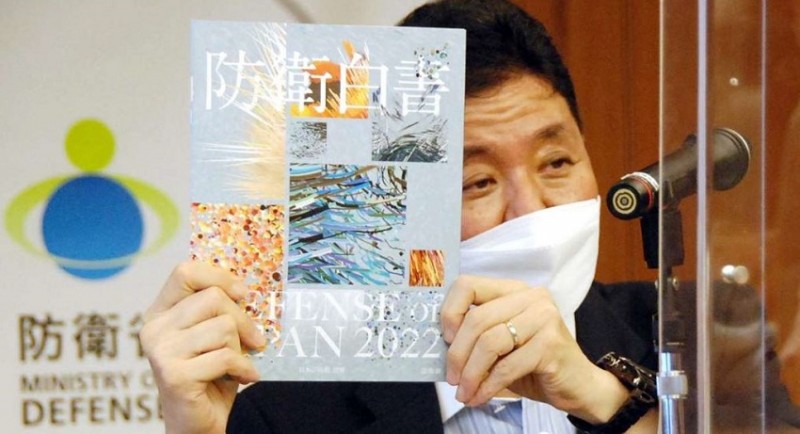
Japan has unveiled its annual security white paper, following a recent proposal for a record defence budget of $59 billion for the upcoming year. The document underscores the region's severe security challenges, describing the Asia-Pacific as facing the "most severe and complex security environment since World War II."
In a detailed 572-page report, Japan’s Defence Minister Minoru Kihara warns of a "new era of crisis," emphasizing that the international community is facing its most significant trial since the end of World War II. The white paper highlights China’s growing military presence and activities in the East China Sea, South China Sea, and broader Pacific region as major strategic challenges for Japan.
Key Security Concerns Outlined
The report stresses that the existing international order is under unprecedented threat, particularly due to China’s rapid military expansion. It notes that China's actions in the East China Sea, including around the Senkaku Islands, and its broader activities in the Pacific are creating significant security challenges for Japan.
Japan’s white paper also points to North Korea’s advancing nuclear and missile programs as direct threats. It highlights Russia’s increased military activities in the Far East and its collaboration with China amid ongoing aggression in Ukraine. This cooperation includes joint military exercises and defense agreements between Russia and North Korea.
Threats to Global Peace
Japan’s white paper reflects a growing sense of urgency about security challenges that could disrupt global peace. It emphasizes the need for Japan to secure its national defense while contributing to the stability of the international order. The paper warns of China’s attempts to alter the status quo by force, particularly in the East and South China Seas, and expresses concern about potential conflicts over Taiwan.
China views Taiwan as part of its territory, though Taiwan maintains independent diplomatic relations. Japan is concerned that any conflict over Taiwan could impact its own security and has responded by increasing its military presence on outlying islands close to Taiwan.
South China Sea Disputes
The South China Sea remains a significant point of contention. China’s expansive claims over the region, believed to hold substantial oil and gas reserves, have led to conflicts with several other nations including Brunei, Indonesia, Malaysia, the Philippines, Taiwan, and Vietnam. Ongoing negotiations have yet to resolve these disputes, and China's assertiveness has contributed to instability in the region.
Japan's Defence Enhancements
In response to these threats, Japan is strengthening its defense capabilities. The white paper outlines plans to acquire stand-off missiles, such as Tomahawk missiles and upgraded Type-12 surface-to-ship missiles, and to enhance its Integrated Air and Missile Defense (IAMD) systems. Japan is also reinforcing its alliances, particularly with the United States, and deepening cooperation with other nations to promote regional stability and the "Free and Open Indo-Pacific" vision.
The Quad, a defense dialogue forum comprising Australia, India, Japan, and the US, is a key part of this strategy. These nations conduct joint military exercises in the Indo-Pacific region, countering China’s increasing regional influence.
Multilateral Cooperation and Budget Plans
Japan is pushing for greater multilateral cooperation for real-time security data sharing, particularly with the US, South Korea, and Australia. The new budget will focus on developing and acquiring drones, missiles, satellites, cyber defense systems, and cloud-based command and control technologies to bolster Japan’s southwestern islands against potential threats from China.
However, Japan’s increased military spending has been met with criticism from China, which has labelled the move as a resurgence of militarism, reminiscent of Japan's military actions before and during World War II.
More To Read: